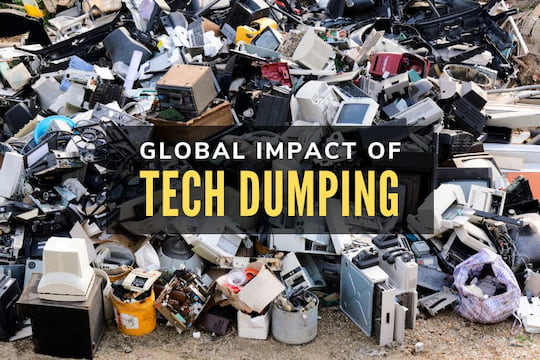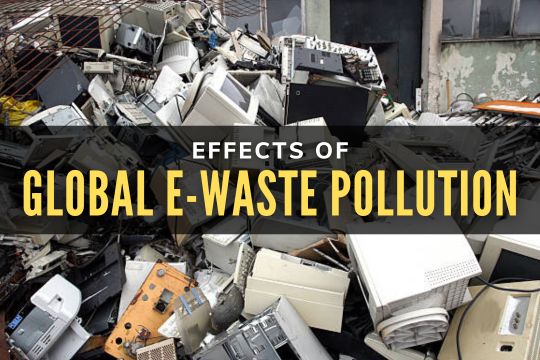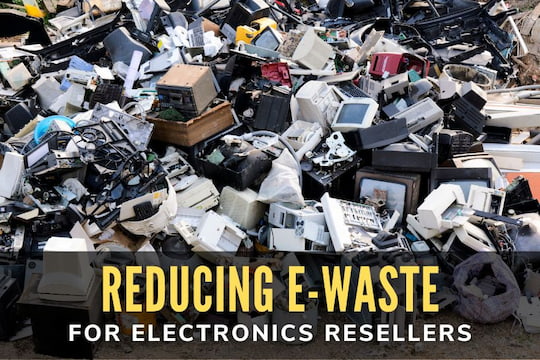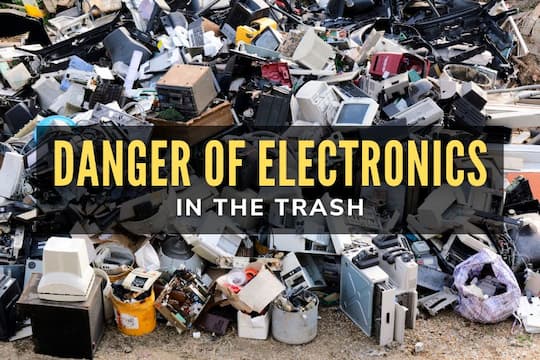What happens to your old phone or computer after you toss it in the trash? Many believe it's safely recycled, but the truth is far more troubling. A significant portion of electronic waste, also known as e-waste, is illegally shipped to developing countries, causing severe harm to the environment and the health of vulnerable communities. The impact of illegal e-waste exports on global communities is both alarming and far-reaching, raising urgent ethical and environmental concerns.

Toxic Burden on Developing Nations
Countries in Africa and Asia, such as Ghana, Nigeria, India, and the Philippines, have become dumping grounds for e-waste under the guise of "used electronics donations." However, this equipment is beyond repair and ends up in informal recycling operations. Here, local workers, often including children, burn wires to extract copper, dismantle devices by hand, and use acid baths to retrieve valuable metals. These practices expose communities to chemicals like lead, mercury, cadmium, and flame retardants.
The environmental consequences are equally dire. E-waste dumping pollutes the soil, air, and water. Contaminated soil affects food supply, while poisoned waterways threaten drinking sources and marine life. The impact of illegal e-waste exports on global communities cannot be overstated. These areas face long-term ecological damage that can take generations to reverse.
Health Hazards from Exposure
Many of the chemicals released during improper e-waste handling are known to cause cancer, respiratory diseases, neurological damage, and reproductive health issues. In towns like Agbogbloshie in Ghana, one of the world's largest e-waste dumping sites, residents live and work in an environment filled with toxic smoke and heavy metal contamination.
Children are especially vulnerable. Studies have shown elevated levels of lead and other toxins in the bloodstreams of children who live near informal e-waste processing sites. These conditions often go untreated due to limited healthcare infrastructure in affected regions, deepening the health crisis.
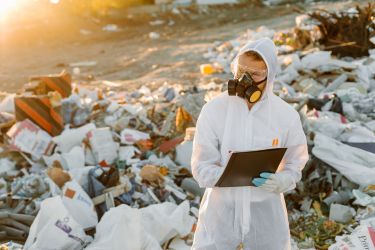
Ethical Concerns and Global Responsibility
Illegal e-waste exports are a form of environmental injustice. Wealthier nations offload the toxic burden of their consumption onto poorer countries that lack the infrastructure to manage it safely. While international treaties like the Basel Convention aim to regulate the movement of hazardous waste, loopholes and weak enforcement allow illegal exports to persist.
This practice violates the principle of global equity. Developed nations have the resources and technology to recycle e-waste responsibly, but they choose cost-saving shortcuts instead. The impact of illegal e-waste exports on global communities reflects a broader failure of ethical responsibility and environmental stewardship.
Economic Exploitation vs. Opportunity
Supporters of e-waste exports argue that they create jobs in developing countries. While this may be partially true, these jobs are often unregulated and dangerous and provide little economic security. Workers earn meager wages under hazardous conditions without protective gear or long-term employment benefits.
Instead of exploiting these communities, investments should build formal recycling infrastructure supporting safe practices, fair wages, and sustainable development. Ethical e-waste recycling can create a green economy while safeguarding public health.

Time to Rethink Tech Waste
Illegal e-waste exports are more than just a shipping issue; they're a human rights, environmental, and ethical crisis. The impact of illicit e-waste exports on global communities calls for stronger international regulation, better consumer awareness, and commitment to sustainable recycling practices. For a deeper look into the consequences, explore our blog on exporting e-waste. It's time to hold the global tech industry accountable and rethink how we dispose of yesterday's devices.





